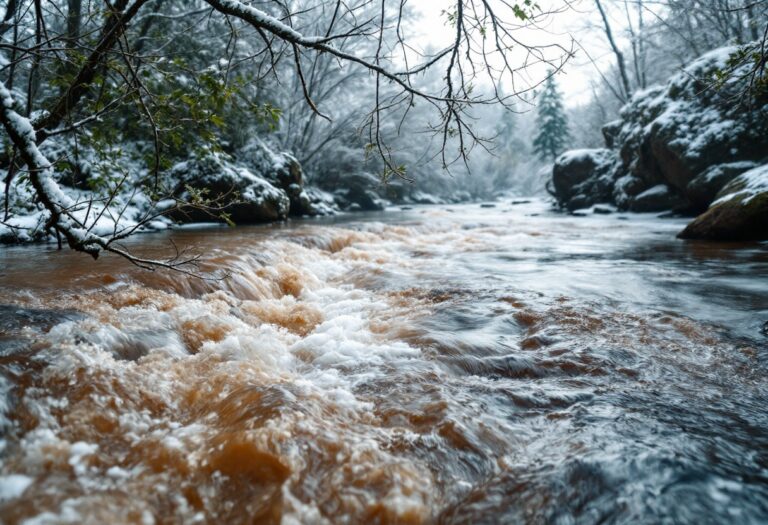Weather warnings highlight risks of flooding due to snow melt and rain in the north.

Topics covered
Severe weather conditions lead to travel disruptions
The onset of 2025 has brought severe winter weather to the Highlands, Aberdeenshire, and Moray, with significant snowfall and icy conditions disrupting travel and education. Roads became impassable, leading to school closures and widespread inconvenience for commuters and students alike.
The Met Office has been proactive in issuing a series of weather warnings for snow, ice, and rain, starting from December 30 and extending through January 10. These warnings have highlighted the potential for hazardous travel conditions and the need for caution on the roads.
Record low temperatures and their implications
As the cold snap continued, temperatures in the region plummeted, with Altnaharra recording a chilling -18.9°C, marking the coldest January temperature in the UK in 15 years. This extreme cold has raised concerns about the impact on infrastructure and public safety. The last time temperatures dipped this low was in January 2010, when Tulloch Bridge recorded -22.3°C. Such frigid conditions not only affect daily life but also contribute to the risk of flooding as warmer weather approaches.
Flood alerts due to rapid snow melt
With temperatures now beginning to rise, the Scottish Environment Protection Agency (Sepa) has issued flood alerts across the north and north-east regions. Sepa warns of a potential “rapid snow melt” expected over the weekend, which, combined with anticipated rainfall, could lead to flooding. The agency has specifically noted that the Spey Valley is at a heightened risk, with significant impacts and disruptions likely. The alerts indicate that minor flooding from surface water, small watercourses, and rivers could occur, particularly on Sunday afternoon, Monday, and early Tuesday. Residents are advised to stay informed about the situation and check Sepa’s website for updates on potential flooding in their areas.





Leave a Reply